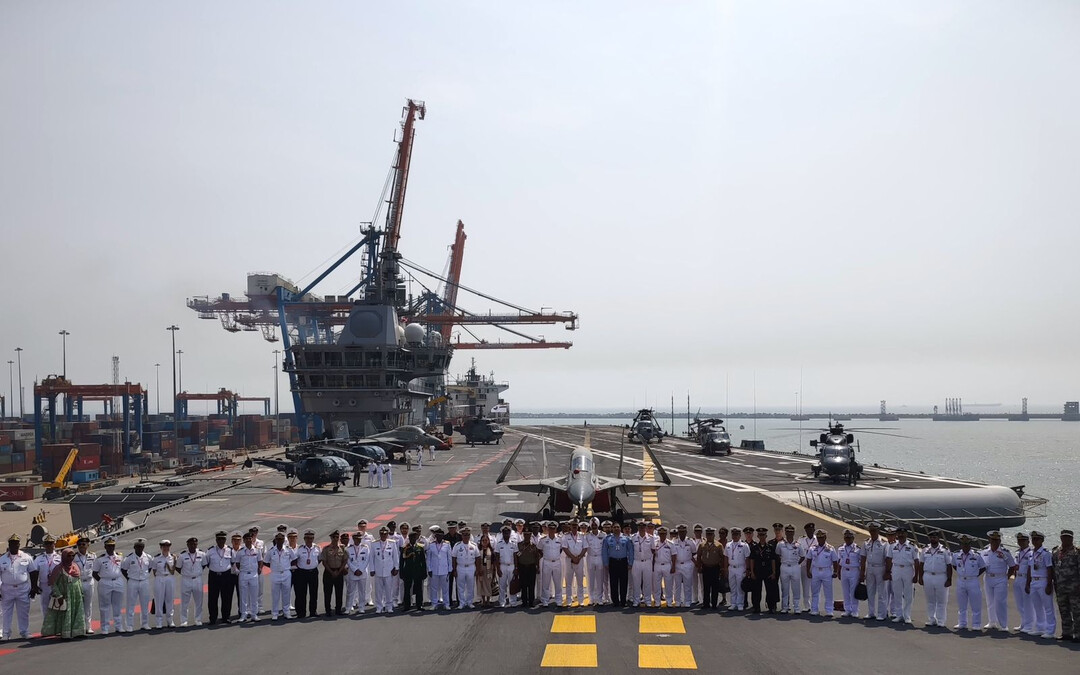
JAKARTA - The Indonesian Navy's ambitious fleet modernization program has come under scrutiny, particularly its recent interest in acquiring the decommissioned Italian aircraft carrier, Giuseppe Garibaldi, and potentially operating Harrier fighter jets from it. This move has surprised observers, as it deviates from previously outlined modernization goals and raises questions about Indonesia's strategic intentions.
The navy's stated rationale for acquiring the carrier, primarily for humanitarian assistance and disaster relief (HADR) missions, appears at odds with its reported desire to operate AV-8B Harrier fighters. While aircraft carriers can be valuable assets for HADR operations, the inclusion of offensive fighter jets suggests a broader, more aggressive military posture.
"The idea of equipping a carrier with Harriers, which are primarily designed for combat roles, doesn't align with the stated focus on HADR," said a regional security analyst, who requested anonymity. "It raises concerns about Indonesia's long-term strategic goals."
This is not the first time Indonesia has expressed interest in acquiring an aircraft carrier. In 2013, the country considered purchasing the Spanish aircraft carrier, Principe de Asturias, but ultimately abandoned the plan. Furthermore, state-owned PT PAL has proposed an indigenous helicopter carrier design, slated for potential production by 2028.
While Indonesia's geographical position, spanning two vast oceans, might suggest a need for enhanced naval power projection, the practicalities of operating an aircraft carrier with fighter jets present significant challenges. The Thai Navy's experience with its aircraft carrier, HTMS Chakri Naruebet, which struggled to operate Harriers and ultimately abandoned the effort, serves as a cautionary tale.
Moreover, the acquisition of an offensive aircraft carrier could send a destabilizing message to Indonesia's neighbors, particularly given existing regional tensions. Indonesia has previously expressed concerns about neighboring countries acquiring advanced fighter jets like the F-35 and has been wary of the AUKUS security pact.
"Indonesia needs to carefully consider the regional implications of acquiring such a capability," said a defense expert. "It risks being perceived as an unnecessary escalation, especially when cooperation should be prioritized."
The Indonesian Navy's last experience with offensive aerial assets was during the lead up to Operation Trikora in West Papua in the early 1960s, using land-based bombers that were retired in 1969. Reintroducing such capabilities, particularly with second-hand Harriers, would be both costly and complex.
Experts suggest that Indonesia's existing Makassar-class landing platform docks (LPDs), which have proven effective in HADR operations, provide a more practical and less provocative solution.
"Indonesia has a strong track record of using its LPDs for HADR," said a maritime security analyst. "Focusing on enhancing these capabilities would be a more strategic and cost-effective approach."
Ultimately, the Indonesian Navy must clearly define its strategic objectives and consider the regional implications before proceeding with the acquisition of an offensive aircraft carrier. Without a clear strategic need, the vessel risks becoming an expensive symbol with limited practical utility. The acquisition of such a sophisticated asset must be driven by a strategy of cooperation first, and military posturing second.
[Copyright (c) Global Economic Times. All Rights Reserved.]




























